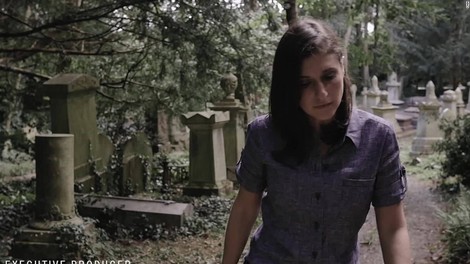Your podcast discovery platform
Curious minds select the most fascinating podcasts from around the world. Discover hand-piqd audio recommendations on your favorite topics.

piqer for: Global finds Technology and society
Prague-based media development worker from Poland with a journalistic background. Previously worked on digital issues in Brussels. Piqs about digital issues, digital rights, data protection, new trends in journalism and anything else that grabs my attention.
Digital Immortality: Griefbots And Digital Wills
Have you seen Be Right Back, the first episode of the second season of British series Black Mirror? If not, to sum up, Martha, devastated after her boyfriend Ash dies in a car accident, finds a company that can create a replica of the deceased out of his digital traces, including social media and emails. And guess what? This eerie vision of near future from Black Mirror is actually already our present.
CNN's document Mostly Human starts with a story of Eugenia Kuyda, who created a digital version of her best friend Roman after he passed away. Inspired by the British series, Kuyda used social media data and texts to create a bot to bring parts of her friend back to life. She is now a co-founder of an artificial intelligence startup, whose app Luka, a messenger for bots and humans, is available on iTunes. Roman is one of the bots featured in the app for anyone to talk to. He even managed to make a teenage girl fall in love with him.
“She knew that he was dead and she knew that he was a bot, but she still developed some feelings,” said Kuyda.
Kuyda agrees that drawing a line between a person and a machine might be problematic. For example, she’s afraid that Roman bot could talk his grieving mother into basically anything. Additionally, as AI continues to learn, Roman bot starts to form opinions that are no longer of Roman who died in 2015.
“The more you talk to it, the better it becomes,” explains Kuyda.
In a startling video, journalist Laurie Segall explores the intersection of death and tech, setting on a quest to execute a digital will, create her griefbot and shoot a post-mortem video-message. The docuseries definitely raises some uncomfortable questions and makes you wonder, what kind of digital footprint you would like to leave behind.
CNN’s look into death in the digital age is part of the six-part investigative docuseries that explores humanity through the lens of new technologies, and all parts are worth watching.
Stay up to date – with a newsletter from your channel on Technology and society.
